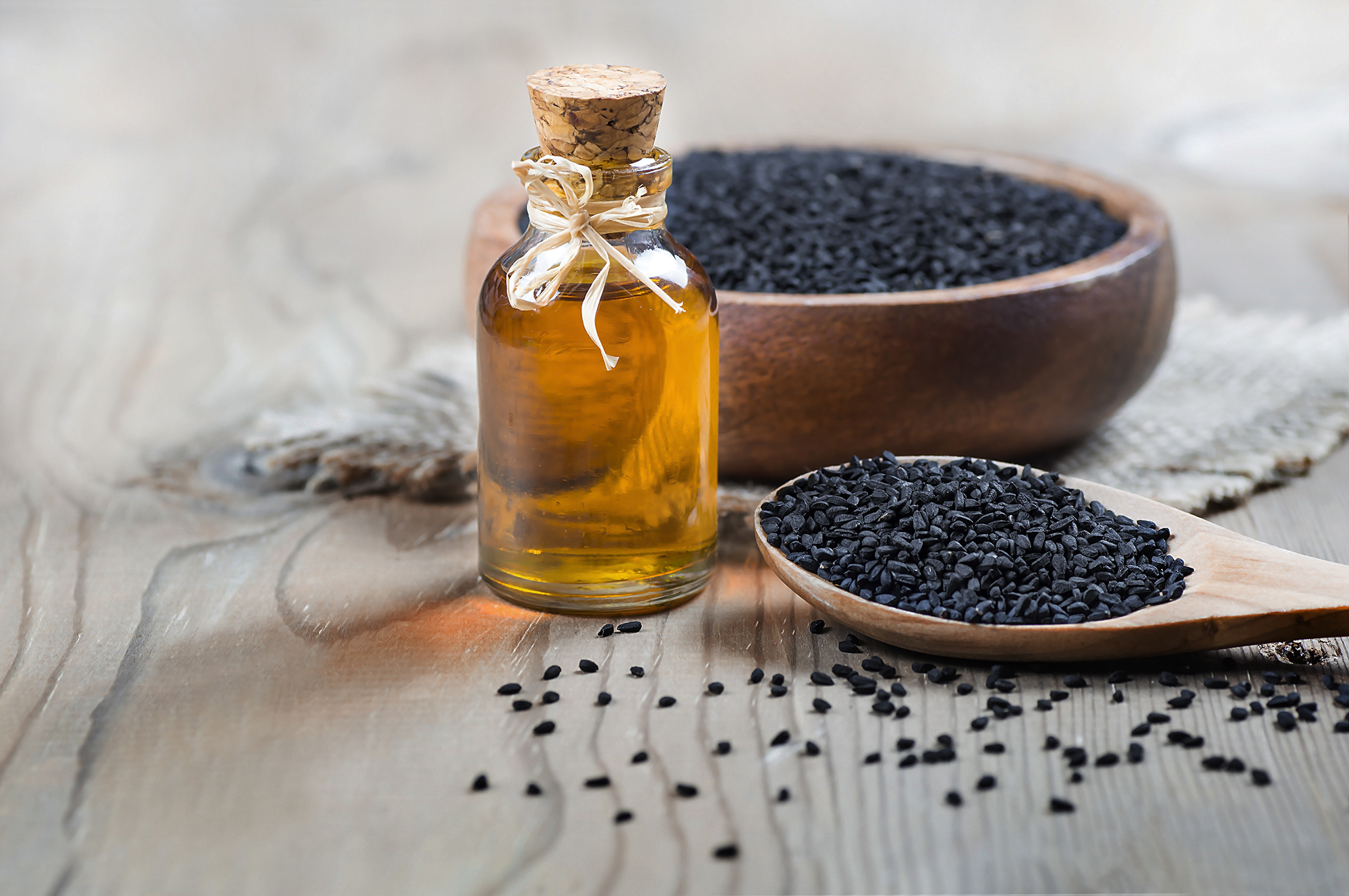
This article is for informational purposes only. The current coronavirus outbreak is an ongoing event and certain details may change as new information comes to light. No effective or FDA-approved products are currently available for the treatment of the new coronavirus (also known as SARS-CoV-2 or 2019-nCoV), although research is still ongoing.
Black seeds and their oil have a long history of folklore usage in the Indian and the Arabian civilizations as food and medicine and have been commonly used as treatment for a variety of health conditions pertaining to the respiratory system, cardiovascular system, and immune system support, as well as for general well-being [1].
Black cumin is best known as an anti-inflammatory supplement. Could it be helpful in coronavirus infection?
Asthma
A boiled extract of the seeds improved asthmatic symptoms in one study (15 mL/kg of 0.1 g boiled extract daily) of 29 asthmatic patients. It reduced the frequency of asthma symptoms, wheezing, and improved lung function over 3 months. The patients who took black cumin seed extract also had a reduced need for additional medications and inhalers [2].
Another placebo-controlled study of 80 asthmatics had similar results. In the study, black seed oil taken by mouth for 4 weeks improved asthma control. Scientists also observed a trend in lung function improvement [3].
A meta-analysis of 4 clinical trials concluded that black seed oil may help as an add-on to conventional treatments for asthma [4].
Black cumin seed extract also showed anti-inflammatory effects in asthmatic rats and mice [5, 6, 7].
Allergies
A couple of small-scale human studies suggest that black seed may help reduce allergic symptoms, especially in people with breathing difficulties.
One review (of 4 studies, a total of 152 patients with allergic diseases) concluded that black cumin seed oil may help with allergies. When used as an add-on to conventional therapy, it reduced subjective allergy symptoms, including asthma, eczema, and stuffy nose [8].
In another study of 66 patients with allergic rhinitis, black seed oil reduced symptoms such as itching, runny nose, sneezing, and congestion after 2 weeks. And in 39 patients with similar symptoms, 2 g daily of black seed cumin seeds after immunotherapy reduced symptoms and increased neutrophils [9, 10].
Lung Damage
Some scientists believe that black seed may also help with breathing problems that are not caused directly by allergies. The boiled extract of the seeds improved breathing and lung function, reducing the need for inhalers, in a study of 40 chemical war victims who had breathing difficulties [11].
In animal studies, black seed extract prevented lung inflammation and damage caused by a chemotherapeutic drug (bleomycin), sulfur mustard gas, and hydrochloric acid [12, 13, 14, 15].
Sore Throat
In a clinical trial on 186 people with inflammation in their tonsils or throat, capsules containing black seed and chanca piedra extracts relieved pain and swallowing difficulties, and reduced painkiller use [16].
Viral Infections
Hepatitis C
Black cumin seed improved the symptoms and reduced viral load in patients with hepatitis C in a study of 30 people [17].
In another study of 75 patients with this condition, black seed alone (500 mg) or combined with ginger (500 mg) had similar beneficial effects [18].
HIV
Anecdotally, black seed oil has been reported to decrease the viral load until making it undetectable in 2 people infected with HIV [19, 20].
Other
In laying hens, dietary supplementation with black cumin seed enhanced their immunity against Newcastle disease virus [21].
Black seed extract, echinacea, and their combination stimulated the immune responses to the vaccine against the flu in chicken and mice [22, 23].
In mice, black seed helped fight the herpes-causing cytomegalovirus virus (CMV) [24].
Black seed extract and its compounds inhibited the following viruses in test tubes:
- A coronavirus from mice (mouse hepatitis virus-A59) [25]
- Herpes simplex virus 1 (cold sores) [26]
- Hepatitis C [27]

